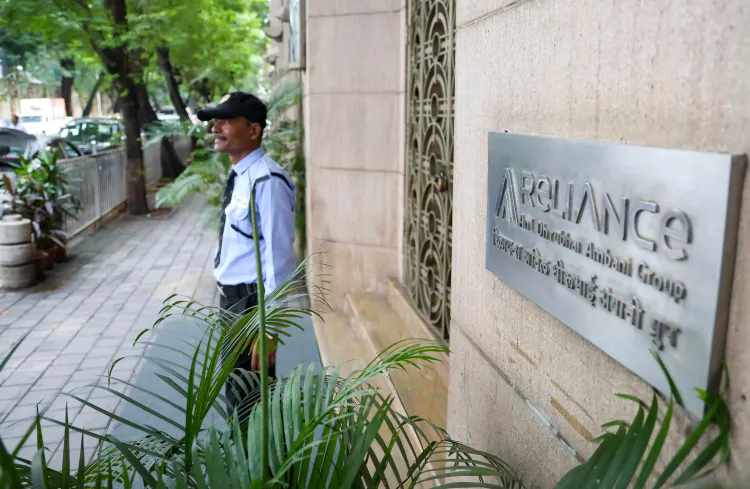Did the ED Really Arrest Reliance Power CFO Ashok Kumar Pal?

Synopsis
Key Takeaways
- Ashok Kumar Pal has been arrested in a major financial fraud investigation.
- The case is linked to the ADA Group, previously led by Anil Ambani.
- Allegations include a Rs 17,000-crore loan fraud involving Yes Bank.
- Bombay High Court upheld the SBI's classification of accounts as fraudulent.
- Implications for corporate governance in India are significant.
New Delhi, Oct 11 (NationPress) The Enforcement Directorate (ED) has apprehended Ashok Kumar Pal, the Chief Financial Officer (CFO) of Reliance Power Ltd and a close associate of industrialist Anil Ambani, in connection with a fraudulent bank guarantee case.
Pal’s arrest is part of a larger investigation into money laundering linked to the ADA Group. He was detained following extensive questioning at the central probe agency's office in Delhi and is set to be presented before a judge.
The ADA case includes accusations of financial irregularities involving Yes Bank and various companies associated with the ADA Group, previously led by Anil Ambani.
The ED has claimed that Anil Ambani and entities associated with the Reliance Group were implicated in a staggering Rs 17,000-crore loan fraud.
Earlier this week, the Bombay High Court upheld the decision of the State Bank of India (SBI) to classify the loan accounts of Anil Ambani and Reliance Communications as “fraud,” stating that the bank’s actions were legally justified, according to a court order made public on Tuesday.
A division bench comprising Justices Revati Mohite Dere and Neela Gokhale dismissed Ambani’s challenge to the SBI decision on October 3. Anil Ambani contended that the order was invalid as he had not been afforded a personal hearing or access to all pertinent documents.
However, the court rejected this argument, asserting that under the Reserve Bank of India’s Master Directions, borrowers are only entitled to submit written representations and do not have a right to a personal hearing.
The high court concluded that Ambani’s appeal was without merit and confirmed the legality of SBI’s classification of the accounts as fraudulent.
On June 13 of this year, SBI labeled the loan accounts of Reliance Communications (RCom) and its promoter, Anil Ambani, as fraudulent, citing reasons such as fund diversion, breach of covenants, and related-party transactions, and referred the matter to the Central Bureau of Investigation (CBI).
Furthermore, another public sector bank, Bank of Baroda, had also classified the loan accounts of Reliance Communications Ltd (RCom) and its former director Anil Ambani as “fraud.”









